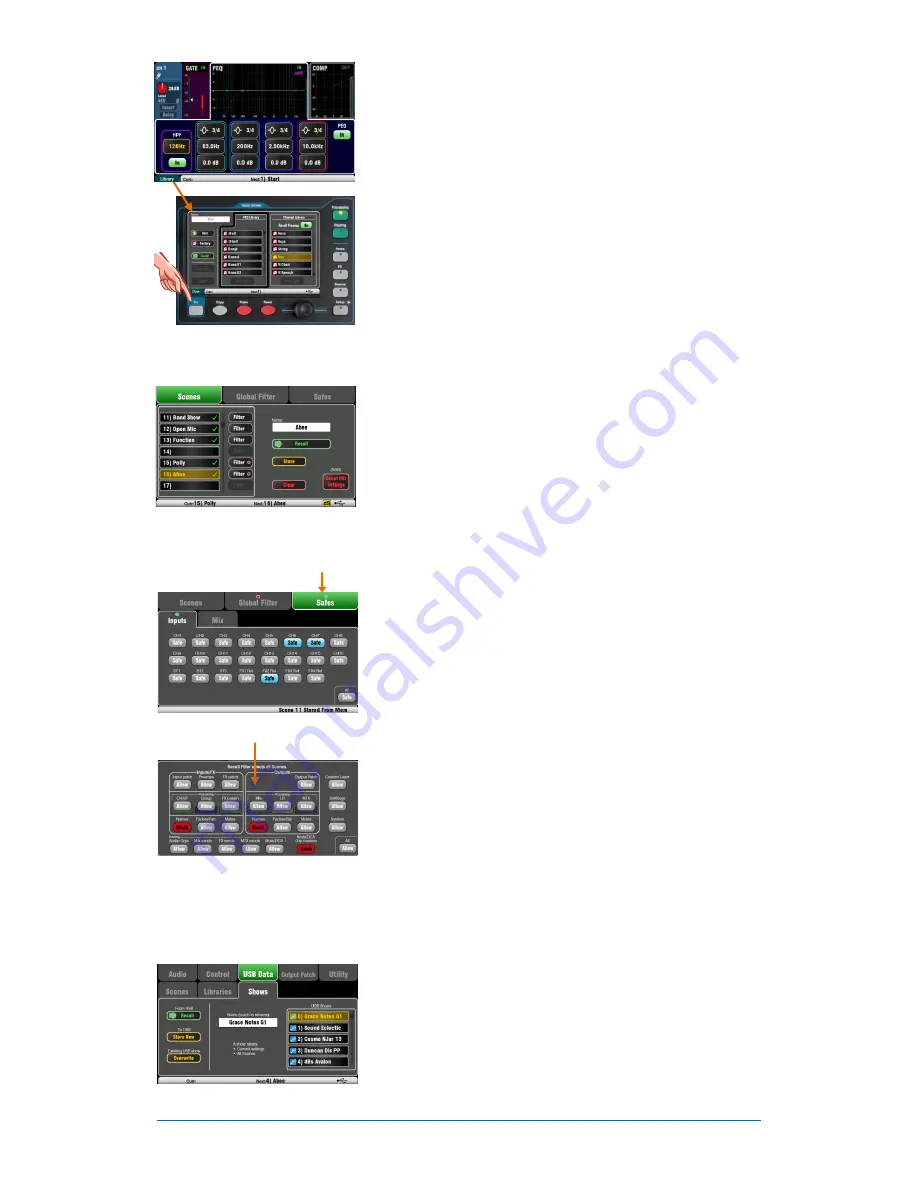
Qu-Pac
Getting Started Guide
21
AP9815 iss2
Libraries
– Use the
Processing
screen
Fn
key to open the
Library
page for the related block, for example the PEQ.
Factory Libraries
provide examples and a typical starting point.
They cannot be overwritten or deleted.
User Libraries
can be
stored, named and edited.
The
Channel Library
recalls all processing (Gate, PEQ, Comp,
Delay) for the input channel. Turn on ‘Recall Preamp’ if you
want this to also include the preamp settings (Gain, Pad, 48V,
Polarity). Channel libraries do not include the linking or ducker
settings.
Channel libraries can provide a very quick and complete way
to set a starting point before sound check once you have
named your channels.
Saving the settings:
Scene memories
– Once you have set the mixer up ready for
the session go to the
Scenes
screen to name and store the
current mix settings as a scene.
You could name and store a scene as a
template starting point
for future shows, different scenes for each band after you
sound check them, theatre show cues, recording sessions and
so on.
You can store up to 100 scenes within the Qu mixer. You can
copy and clear existing scenes. To copy a scene hold down
the
Copy key
and touch a scene in the list. Then hold down
the
Paste key
and touch the scene position to copy to. This
copies all scene parameters, its name and filter.
Scene Safes
– This function protects
all parameters of a
selected channel or mix
from being overwritten when a scene
is recalled. For example, walk-in music, DJ or presenter. This
means that any changes you make on those channels after
the sound check has been stored will not be lost when you
recall that scene later. Use the
Scenes / Safes
screen.
Global Scene Filter
– This function protects
selected
parameters of all channels or mix
from being overwritten when
any scene is recalled. For example, the SoftKey or Custom
Layer assignments that you may make after sound check, or
the LR mix processing including GEQ which you may change
as the audience fills the room. Use the
Scenes / Global Filter
screen. This presents a grid of buttons to block different
groups of parameters for different channel types.
Per Scene Filter
– This is similar to the global filter but
protects selected parameters being overwritten when just its
related scene
is recalled. Each scene has its own filter. This
can be a powerful tool, for example when recalling cues in a
theatre show, or effects changes during songs. You can copy
and clear individual scene filters.
The reset default is no Safes or Filters set.
Show memories
– A Show stores everything including the
current mix settings, all 100 scenes, libraries and setup.
Shows are not stored within the mixer. They are created
directly to a USB drive in the Qu-Drive socket.
Note
– Do not edit file names or locations on the USB key.
A dot shows one or more assigned
Groups of parameters





















